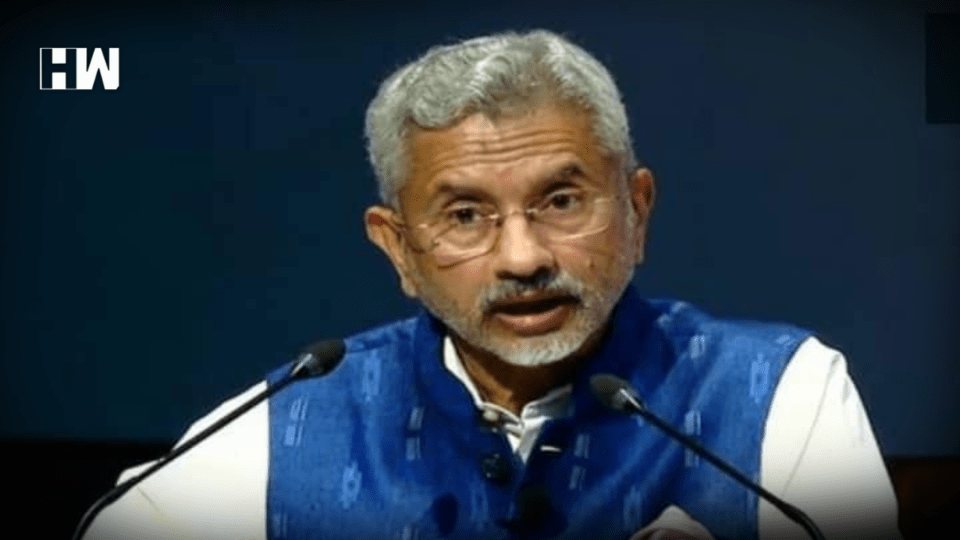Vienna: External Affairs Minister, S Jaishankar on Monday lambasted China for trying to unilaterally change the Line of Actual Control (LAC).
In an interview with the Austrian ZIB2 podcast, a daily news magazine of ORF television, Jaishankar said, “We had an agreement not to unilaterally change the LAC, which they have tried to unilaterally do. So there is, I think, an issue, a perception that we have which derives directly from our experiences.” The Galwan Valley and Pangong Lake in the west of the LAC, have hosted flashpoints in recent years. In the east Tawang was the site of the latest India-China scuffle.
“I think there’s a larger concern based on our experiences. The concern is that we had agreements with China not to amass forces in our border areas, and they have not observed those agreements, which is why we have the currently tense situation that we do,” he said.
Recently, India and China held the 17th Round of Corps Commander Level Meeting at the Chushul-Moldo border meeting point on the Chinese side on December 20 and agreed to maintain security and stability on the ground in the Western Sector.
Speaking about China trying to change the status quo, he said that China may blame India for not following the agreements, however, the satellite pictures could clearly show who was at the fault.
“Now, where else the status quo may change or not change? I would hesitate as a foreign minister to predict publicly. I may have my own views and assessments, but I certainly can share my experience. And my experience is that written agreements were not observed and that we have seen levels of military pressure, which, in our view, has no justification. China would say the opposite. They would say that India had not obeyed different agreements. But obviously, no, I think it’s difficult for China to say that. For this reason, the record is very clear, because today there’s a lot of transparency. You have satellite pictures. If you see who moved the forces to the border areas first, I think the record is very clear. So it’s very difficult for China to say what you suggested they could,” said Jaishankar.
Commenting on India which is likely to overtake China as the most populous country, and its place in world politics, Jaishankar said, “India will probably overtake China as the world’s most populous country within this year. Is this fact of any political significance to India, or is it just a mere statistic? You know, we’ll know that when we reach there, won’t we? Because we have never used numbers in that manner. Maybe other countries have. I would still say it is a statistic to a large extent,” to ZIB2.
He also highlighted the need for reforms in the United Nations, saying that the world’s most populous country is not among the permanent members of the Security Council.
“What does it say about the state of the UN? If that is the case? So it’s both a yes and a no. It’s partly a statistic, but I think it’s a statistic that means a lot. For several years, you have called for a permanent seat on the Security Council as if Brazil as Japan, or Germany. How long will it take, from your point of view, till this reform of the Council will actually become reality? Well, ideally, we’d liked it yesterday, of course, but the problem, I think, is that those who are today enjoying the benefits of permanent membership clearly are not in a hurry to see the reform. I think it’s a very short-sighted view, in my opinion, because at the end of the day, the credibility of the UN, and frankly, their own interests and effectiveness, is at stake. So my sense is it will take some time, hopefully not too much time,” said Jaishankar.
Also Read: RBI Was Not In Loop About Demonetization: Report
He also underscored that the UN is not represented evenly, he said, “I can see a growing body of opinion among UN members who believe that there must be change. It’s not just us. You have entire Africa, entire Latin America left out developing countries vastly underrepresented, I think, the state of the world. This was an organization invented in 1945. It’s 2023. And when you would have to guess for a year when this will happen, what would it be? No, I wouldn’t guess, because I know the complexities of this process. It’s a tough one. I would be honest with you. It’s a tough one. But I don’t think we should give up because it’s a tough one. On the contrary, because it’s a tough one, we should actually up the ante, increase the feeling in bad parts of the world that this reform is essential.”
(Except for the headline, this story has not been edited by HW News staff and is published from a syndicated feed.)
As an independent media platform, we do not take advertisements from governments and corporate houses. It is you, our readers, who have supported us on our journey to do honest and unbiased journalism. Please contribute, so that we can continue to do the same in future.

